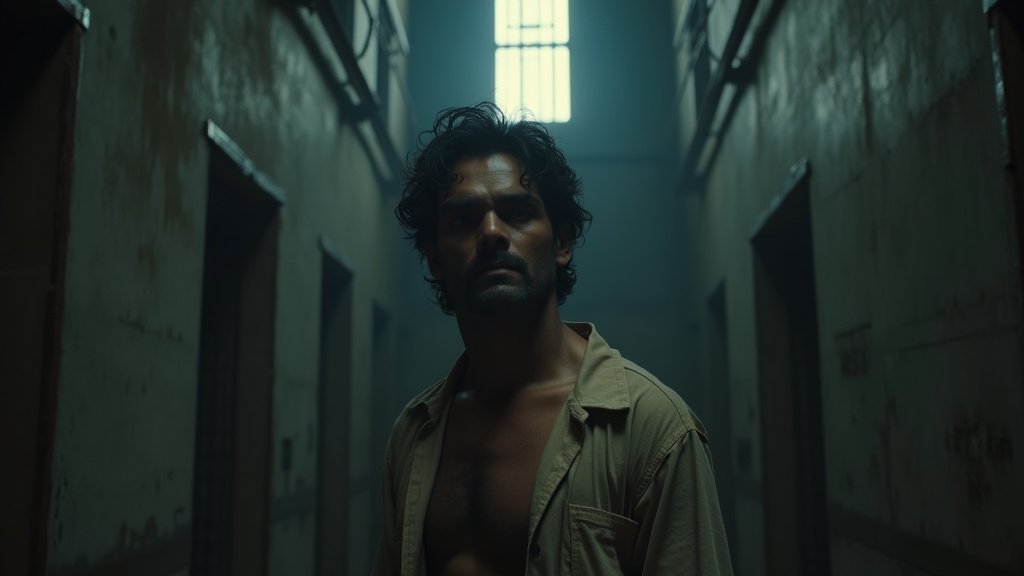Toronto International Film Festival 2025 Welcomes Anurag Kashyap’s ‘Bandar,’ a Stark Examination of India’s Judicial System
Anurag Kashyap, a filmmaker renowned for his unflinching gaze at the darker facets of Indian society, has once again captured global attention with the world premiere of his latest film, ‘Bandar’ (Monkey In A Cage), at the prestigious 50th Toronto International Film Festival (TIFF) 2025. Selected for the esteemed Special Presentations program, the film, starring Bobby Deol in a career-defining role, delves deep into the labyrinthine and often broken machinery of India’s prison system and judicial process. This new movie has quickly become a talking point, sparking crucial conversations that resonate with trending news surrounding justice reform.
A Premiere on the World Stage
The 50th edition of TIFF, running from September 4 to 14, 2025, marked the global debut of ‘Bandar.’ The film’s inclusion in the Special Presentations category, which celebrates high-profile premieres and celebrated auteur cinema from around the world, signals its artistic merit and potential impact. Director Anurag Kashyap shared his excitement, posting on social media, “Couldn’t be happier to present #Bandar @tiff_net with my fabulous team. Thank you @cameronpbailey @robyn_citizen and the TIFF team.” Bobby Deol also commemorated the occasion, calling it “The story that should not have been told… but is the official selection at the 50th Toronto International Film Festival 2025.” This sentiment hints at the film’s provocative nature and its daring exploration of sensitive themes.
Inspired by True Events: The Genesis of ‘Bandar’
‘Bandar’ is not a work of fiction born solely from imagination; it is deeply rooted in a real-life event. The genesis of the film traces back to producer Nikhil Dwivedi presenting Kashyap with a newspaper article detailing a particularly compelling and disturbing case. This real-world inspiration, as Kashyap explained, required the filmmakers to navigate “very thin lines.” He elaborated on the challenges, noting, “You don’t know who’s right, who’s wrong. There was rampant misuse of new laws—cases where one woman filed eight different cases in eight different police stations with the help of a lawyer and a policeman.” This anecdote highlights the film’s commitment to portraying the complexities and potential for systemic abuse within the legal framework.
A Mirror to India’s Flawed Justice System
At its core, ‘Bandar’ is a searing indictment of India’s slow judicial process and the inherent flaws within its prison system. The film underscores a grim reality: over 77% of inmates are accused of crimes and held in prison, yet their cases languish for years, or sometimes never reach a trial at all. Kashyap shared a particularly haunting anecdote during his research: “A man came out of prison after 32 years, declared innocent—but his case never even came up. That’s an entire lifetime wasted.” This narrative thread speaks to the profound human cost of judicial delays, a topic frequently featured in national news.
The film also touches upon the complexities surrounding #MeToo allegations in the digital era, weaving them into the fabric of its narrative. By focusing on a fading television star, Samar (played by Bobby Deol), accused of rape by his ex-girlfriend Gayatri, Kashyap masterfully exposes the systemic injustices and the voices that are often silenced within courtrooms. As Kashyap himself stated, “This film is not about declaring someone innocent or guilty. It’s about the cracks in the system, the silences in the courtroom, and the people who disappear inside them.”
Bobby Deol’s Vulnerable Portrayal
Bobby Deol’s performance as Samar is being lauded as a significant resurgence. Anurag Kashyap revealed that Deol’s attachment to the film came at a time when he was being flooded with offers from big-banner mainstream projects. Deol’s decision to take on ‘Bandar,’ a role demanding profound vulnerability, was a testament to his artistic courage. “A complete surrender for somebody who’s been a star for the longest period of his time, then he has seen a total lull, and then when he’s getting all kinds of big mainstream movies, he picks Bandar and says, ‘I want to do it.’ Because he’s thinking, ‘I’ve never been asked to just be vulnerable.’ He’s so vulnerable in the film—so emotionally naked,” Kashyap remarked. This portrayal of emotional nakedness is central to the film’s critical examination of how the justice system impacts individuals, regardless of their societal standing.
Authenticity Through Diversity
Adding another layer of realism to ‘Bandar,’ Kashyap made a conscious decision to cast exclusively from theatre groups across different Indian states. This approach was intended to reflect the rich linguistic and cultural diversity found within Indian prisons. “In a prison, people speak all kinds of languages,” the director observed, incorporating actors fluent in Kannada, Malayalam, Bengali, and Marathi. Notable theatre artists like Raj B. Shetty, Indrajith Sukumaran, Riddhi Sen, and Ankush Gedam are part of the ensemble, further enriching the film’s texture and authenticity. The prison itself, in Kashyap’s vision, becomes a microcosm of a “divided, misunderstood country.”
Broader Context and Future Releases
The film’s themes resonate with ongoing discussions in India about judicial reform and the urgent need to address the staggering backlog of cases. With over 5 crore cases pending across Indian courts, the issues portrayed in ‘Bandar’ are far from abstract. The film’s premiere at TIFF positions it not just as a compelling cinematic release, but as a significant piece of social commentary. As the entertainment landscape continues to evolve with new movie and TV show releases, ‘Bandar’ stands out for its courageous tackling of relevant social issues. While its theatrical release dates in India are yet to be announced, its festival run and critical reception suggest it will be a major talking point in the year’s releases, potentially influencing broader conversations on justice and human rights.
‘Bandar’ is more than just a thriller; it’s a powerful narrative that forces audiences to confront uncomfortable truths about justice, law, and the human condition within the Indian penal system, making it a highly anticipated new movie for cinephiles and social commentators alike.





